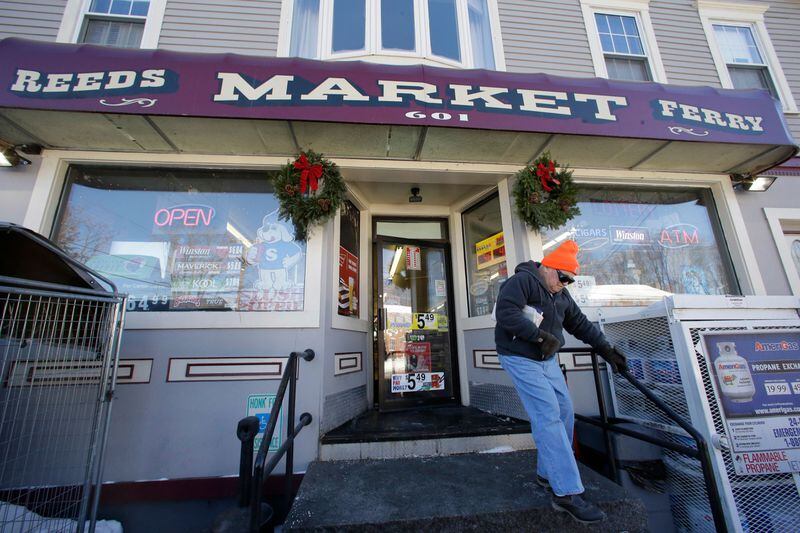Lawyers for the New Hampshire mystery woman who won a $559.7 million Powerball jackpot collected her winnings Tuesday while continuing the legal battle to keep her identity secret.
Lawyer William Shaheen accepted the oversized check, written out to the Good Karma Family trust, for the lump-sum payout of $352 million.
Shaheen immediately doled out $249,000 to two charities — Girls Inc. and End 68 Hours of Hunger — and promised there would be many millions donated to other charities in the future.
MORE: Winner of $560 million Powerball says she made a 'huge mistake'
"She realizes how lucky she is," Shaheen said. "My client doesn't want any accolades, she doesn't want any credit. She just wants to do good things."
Shaheen presented a $150,000 check on behalf of his client to Girls Inc. Three more checks of $33,000 each were given to three local chapters of End 68 Hours of Hunger.
The woman won the Powerball drawing Jan. 6 after buying the ticket at Reeds Ferry Market, a convenience store in Merrimack. Shaheen said he would appeal if a New Hampshire judge rules that the woman's name must be revealed.
State law requires release of a winner's name and hometown. The state Attorney General's Office said the real name of the woman, identified thus far only as Jane Doe, must be revealed because she signed her name on the back of the ticket.
Release of the names provides transparency and assures the public that winners aren't associated with the lottery, the office said.
Shaheen's law firm claimed in a lawsuit filed in January that by winning she joined a small demographic of jackpot winners that "has historically been victimized by the unscrupulous." They say she made a "huge mistake" when she signed her real name on the back of the ticket before contacting them.
The woman could have remained anonymous had she established a trust, then had a trustee sign the ticket, the lawyers claim.
The lawsuit describes the woman as an "engaged community member" who wants to shop at places such as Reeds Ferry Market, attend public events and otherwise function "without being known or targeted as the winner of a half-billion dollars."
Charlie McIntyre, executive director of the state lottery, said the relationship between the winner's team and the lottery has not been "adversarial."
"The last thing we want to do is stand between a winner and her money," McIntyre said.






